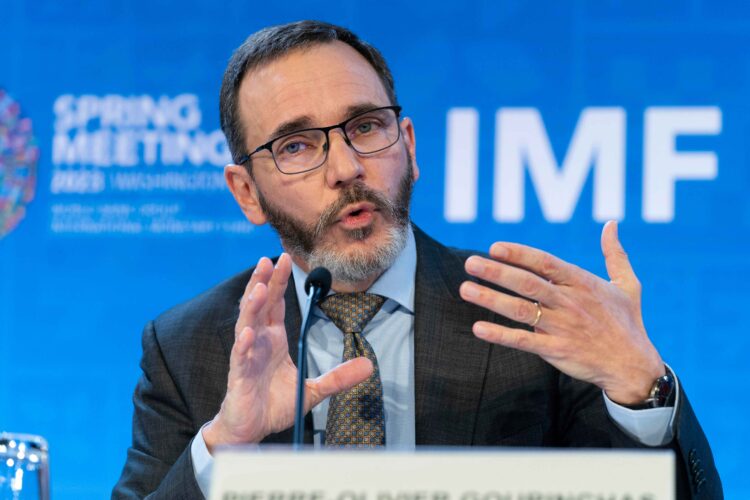The International Monetary Fund (IMF) is holding its annual meeting in Marrakech, Morocco this week. Among other things, it predicted a slowing of global economic growth on account of high interest rates (primarily imposed to counteract rampant inflation), the Russo-Ukraine War, and now geopolitical shifts caused by the outbreaking Israel-Palestine conflict.
The IMF expects global growth to slow down to 2.9 percent in 2024 from an estimated 3 percent this year. Previously, it had expected a 3 percent growth for 2024. “The global economy is limping along, not sprinting,” IMF chief economist Pierre-Olivier Gourinchas said.
For reference, global growth was at 3.5 percent in 2022. Economists have claimed that worldwide economic growth was cut by $3.7 trillion due to the war in Ukraine. Now, with Middle Eastern conflict heating up, oil prices among other things are set to take a hit.
IMF warns of stubborn inflation and weaker global growth in 2024 https://t.co/2eASbcWXDt via @business
— Yahoo Finance (@YahooFinance) October 10, 2023
As previously reported, oil prices rose by roughly 5 percent Monday following the outbreak of the war in Israel. Gourinchas said the world economy will decline by 0.15 percent and global inflation will rise by 0.4 percent if oil prices increase by 10 percent.
Learn the benefits of becoming a Valuetainment Member and subscribe today!
Today, the IMF said it is seeing “significant support” for an American-backed call for an increase to lending quotas. This means that members of the IMF, which include the world’s most powerful countries, would have to give more money to the global lender so that it may in turn give more money to poorer nations. This practice is done to keep struggling countries solvent, i.e. not defaulting on their debt which leads to political turmoil.
The managing director of the IMF, Kristalina Georgieva, told a private gathering attended by news service Reuters that the quota is being pursued to make sure the IMF has enough lending resources to deal with a possible global economic downturn.
“If we don’t get the quota increase, our relative capacity to stand toe-in-front of future shocks diminishes,” Georgieva said. “I think it would be a good thing to have a deadline on the formula, because without changing the formula, we are stuck.”
Members contribute at a rate proportional to the shareholdings. Through Georgieva, the IMF has stated its intentions to restructure the shareholding layout, such as by giving China more shares to reflect its growing economy. China, India, and Brazil have each sought more voting power at IMF which coincides with shareholdings.
The deadline for reaching a decision on the quota increase has been set for Dec. 15. The deadline for the shareholder restructuring is being left up to IMF member states.


















Add comment